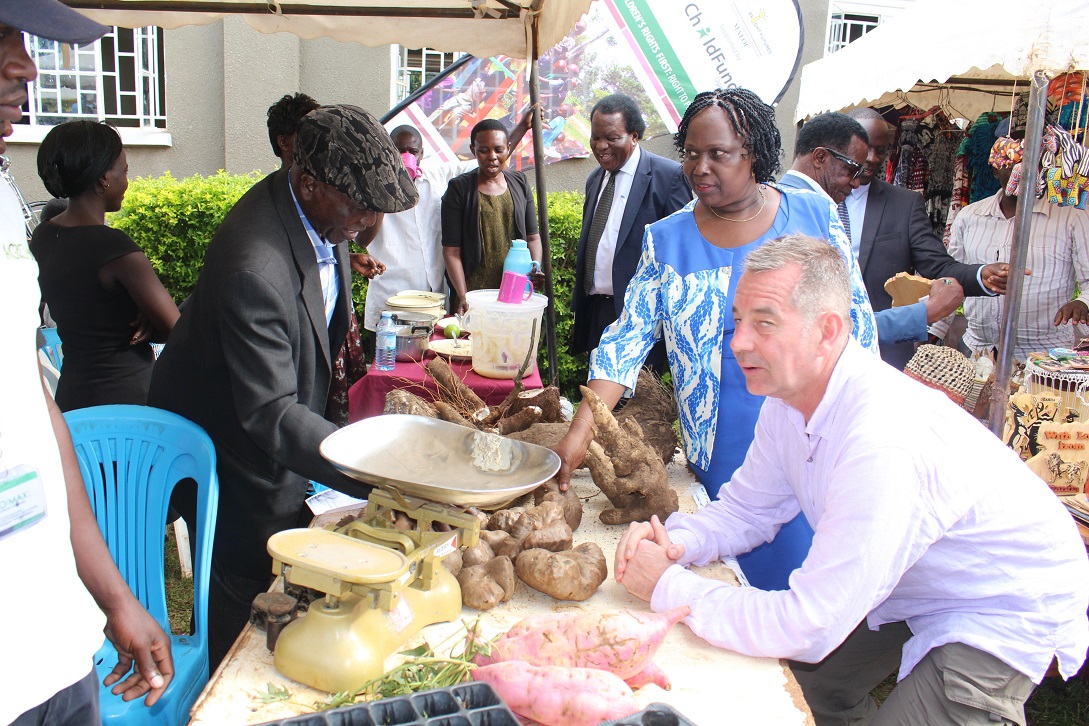
MBALE – The regional director The hunger project [East Africa] said climate-related devastation was striking the earth on a weekly basis and warned that urgent action must be taken to avoid a catastrophe.
“We need to address Climate Change as it has an impact on land, water availability, biodiversity and migration,” said Dr Daisy Owomugasho 5 November.
Dr Owomugasho who was addressing Busoba community at the occasion to hand over The Hunger project Mbale Epi-center to self-reliance in Mbale said the project has been training farmers in an effort to increase the resilience of rural populations and cope with climate change.
She revealed that The Hunger-Project Uganda co-launched a Global Climate Change Alliance (GCCA) project to increase the resilience of rural populations and agricultural production systems, as well as build the capacities of communities, commercial farmers and the Government of Uganda to confront climate change.
This call comes at a time when, the Intergovernmental Panel on Climate Change (IPCC), a panel of international experts assessing the current scientific knowledge on climate asserted that warming of the earth’s climate system is “unequivocal.”
The panel’s conclusions are based on mounting evidence of shifts in the climate and consequent effects on ecological processes and biodiversity.
Mr Bob Natifu, as assistant commissioner for climate change, says the world’s less industrialized regions are particularly vulnerable to the effects of climate change and that in rural areas, specifically, environmental change has immediate and direct effects on the health and well-being of millions of households that depend on natural resources for their basic livelihoods.
He explained that Climate change can reduce the availability of the local natural resources, limiting the options for rural households that depend on natural resources for consumption.
“Land is likely to become less fertile; fewer reeds may be available for basket making; there may be less local fuel wood for cooking and all these effect human beings that is why we need to avert the effects of Climate Change,” said Mr Natifu.
He explained that Climate change can disrupt food availability, reduce access to food, and affect food quality adding that projected increases in temperatures, changes in precipitation patterns, changes in extreme weather events, and reductions in water availability may all result in reduced agricultural productivity.
Mr Sam Cheptoris the minister of water and environment said the impacts of climate change include warming temperatures, changes in precipitation, and increases in the frequency or intensity of some extreme weather events, and rising sea levels.
He added that these impacts threaten our health by affecting the food we eat, the water we drink, the air we breathe, and the weather we experience.
The consensus of the Intergovernmental Panel for Climate Change (IPCC) is that substantial climate change has already occurred since the 1950s, and that it’s likely the global mean surface air temperature will increase by 0.4 to 2.6°C in the second half of this century (depending on future greenhouse gas emissions).
The IPCC adds that agriculture, and the wider food production system, is already a major source of greenhouse gas emissions and that future intensification of agriculture to compensate for reduced production (partly caused by climate change) alongside an increasing demand for animal products, could further increase these emissions.





